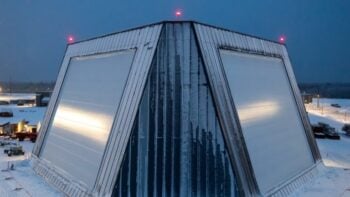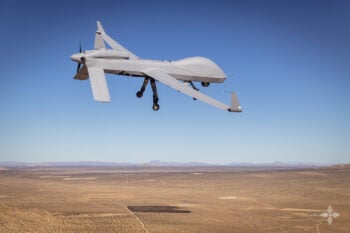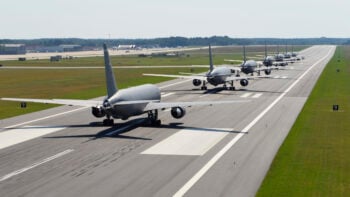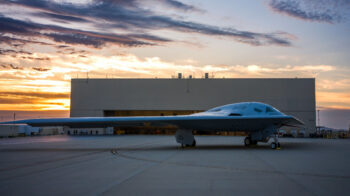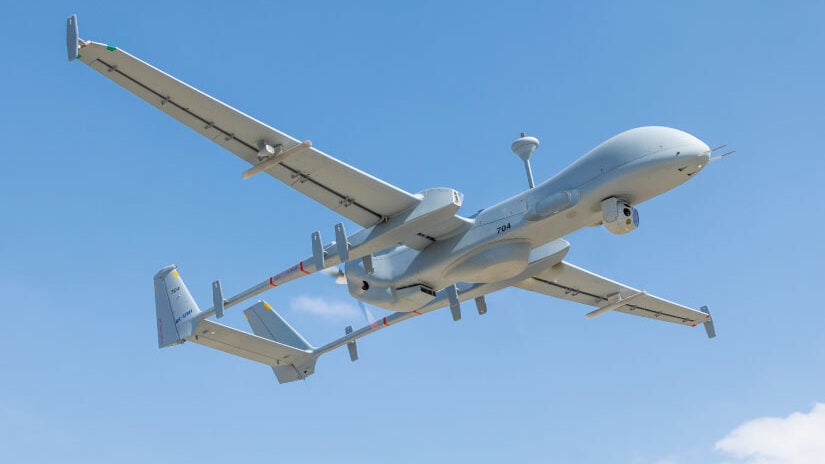
Heron MK-2 by IAI. (IAI)
AVALON AIR SHOW — Israel Aerospace Industries (IAI) is considering another go at selling armed unmanned aircraft to Australia, even though it lost out to American firm General Atomics’ Sky Guardian in a procurement fight several years ago.
Ron Tryfus, IAI senior vice-president for future growth, said the company was interested in bidding again.
“We have a very strong platform that we have sold all over the world,” he said. “I am not sure that we are cheaper than [General Atomics] but we are more flexible in the different payloads we can operate.”
Australia planned to buy 12 Sky Guardians and gained US approval for the deal, worth around US$1.65 billion, in April 2021.
But in March 2022, Australia’s Liberal Party coalition government pulled the plug and redirected the money to bolstering the nation’s cyber defenses.
With a Labor government now in power and a new strategic defense study under way, it’s anticipated plans for acquisition of armed UAVs will be resurrected.
RELATED: Frustration mounts for Israeli defense firms that can’t export payloads for drones
The Australian Defense Force (ADF) currently operates small tactical UAVs and will soon acquire the first Northrop Grumman Triton for high altitude long range maritime surveillance — but has nothing for operations at middle-altitudes, and no armed UAVs.
When General Atomics emerged victorious, IAI had pitched its Heron TP, a medium-altitude long-endurance armed UAV, in service with the Israeli Defence Force and unspecified other countries. With the prospect of a new competition, IAI is offering a pair of Heron TP offspring, Heron Mark II and Maritime Heron.
The ADF had operated Heron TP’s predecessor in Afghanistan so was familiar with the capability. It was also familiar with the General Atomics Reaper from Australian personnel who had served with American UAV units.
One strike against Heron TP may have been that it could not provide assured secure access to allied intelligence networks, especially US networks, while the Reaper could.
Tryfus said Heron systems could now be fully integrated with US networks: “It is not a problem. We have contacts with different companies in the US that can provide communication in a way that we can be fully compliant with the US standards.”
Tryfus said the capability provided by a medium altitude long endurance UAV complemented the Tritons Australia was acquiring.
“Our UAVs are much more cost effective per hour of operation, carry a big variety of payloads, with provision for other missions as well,” he said.
















